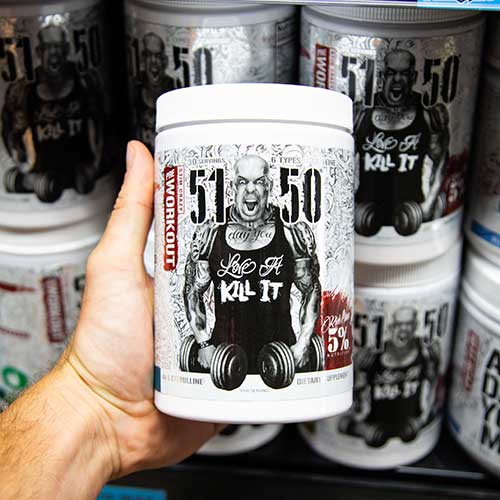Nutrition, Supplements
Can Pre Workout Cause Diarrhea? How to Prevent it!
We all know how pre-workout supplements have become the talk of the town in the fitness realm. They’re celebrated for their power to ramp up your energy, endurance, and concentration during those intense sweat sessions.
But, as with any supplement, they can sometimes come with a few hitches. A question that pops up quite frequently is, “Does pre-workout give you the runs?” or in other words, “Can pre-workout cause diarrhea?” Let’s dive into this topic and shed some light on it.
Is it possible for pre-workout to cause diarrhea?
Yes, certain ingredients in pre-workout supplements can potentially cause diarrhea in some individuals. It’s important to note that everyone’s body reacts differently to different substances. Some may experience no side effects at all, while others might experience gastrointestinal issues like diarrhea.
What are some pre-workout ingredients that may cause diarrhea?
When it comes to taking pre-workout supplements, it’s important to understand what you’re putting into your body. While most pre-workout supplements are safe and effective, some pre-workout ingredients may lead to unwanted side effects such as diarrhea. Here are five such ingredients:
Caffeine
Found in nearly all pre-workout formulas, caffeine is a stimulant that boosts energy levels. However, high doses of caffeine can overstimulate the digestive system, leading to diarrhea (1).
Sodium Bicarbonate
This ingredient is often added to pre-workout supplements to buffer lactic acid and prevent muscle cramps. But like caffeine, sodium bicarbonate can cause an upset stomach and diarrhea, especially when consumed in large amounts (2).
Magnesium
Magnesium aids in muscle relaxation and blood flow, but it also has a laxative effect when taken in high doses. If you’re sensitive to magnesium or if your pre-workout supplement contains a lot of it, you might experience diarrhea (3).
Creatine
This popular ingredient helps increase strength and muscle mass. However, in some people, it can cause stomach pain, nausea, and diarrhea, particularly when taken in high amounts or on an empty stomach (4).
Artificial Sweeteners
Many pre-workout supplements contain artificial sweeteners like sorbitol and xylitol to enhance taste. However, these sweeteners can draw water into the intestines, which can lead to diarrhea (5).
It’s also worth mentioning that pre-workout supplements can raise your heart rate and blood pressure, so anyone with high blood pressure should exercise caution when using these products.
Other Factors That Can Cause Diarrhea
Apart from the side effects of pre-workout drink formulas, certain lifestyle habits related to the gym could also contribute to diarrhea. These might include:
Pre-Workout
- Inappropriate Meal Timing: Eating too close to your workout can put stress on your digestive system. Try to have your meal at least 2-3 hours before your workout to give your body time to digest the food.
- Choosing the Wrong Pre Workout Supplements: Not all pre-workout formula drinks are created equal. Some may contain ingredients that your body doesn’t agree with, causing digestive upset. Always choose pre-workout supplements carefully and consider starting with a lower dose to see how your body reacts.
During Workout
- Overexertion: Pushing yourself too hard during your workout can stress your body, including your digestive system. This could potentially lead to diarrhea. Listen to your body and pace yourself to maintain optimal workout performance.
Post-Workout
- Eating Too Quickly: After an intense workout, your body needs time to cool down. If you eat a large meal immediately after exercising, it can put stress on your digestive system and lead to diarrhea.
- Consuming Too Much Protein: While protein is essential for muscle recovery and growth and can aid in weight gain, consuming too much at once can overwhelm your digestive system and lead to diarrhea.
Tips for Preventing Diarrhea While Taking Pre Workout
1. Start with a Lower Dose
If you’re new to pre-workout supplements or trying a new brand, start with a lower dose than recommended. This can help your body adjust and minimise potential pre-workout side effects like diarrhea.
2. Stay Hydrated
Proper hydration is key in preventing diarrhea. Make sure you’re drinking enough water throughout the day and during your workouts.
3. Choose Non-Stimulant Pre Workouts
Some people find that stimulants like caffeine can upset their stomachs. If that’s the case for you, consider choosing a non-stimulant pre-workout supplement instead.
4. Eat a Small Snack
Taking pre-workout supplements on an empty stomach can cause digestive issues for some people. Try eating a small, easily digestible snack before taking your supplement.
5. Space Out Your Supplement Intake
Instead of taking your entire pre-workout supplement at once, try spreading it out over 15-30 minutes. This may make it easier on your stomach.
6. Avoid Mixing Supplements
Some people mix different supplements to achieve their fitness goals, but this can be hard on your stomach. Stick to one pre-workout supplement at a time to see how your body reacts.
7. Listen to Your Body
Everyone’s body is unique and reacts differently to different substances. If a certain pre workout supplement consistently causes discomfort or diarrhea, it might not be the right one for you.
Remember, pre-workout supplements are designed to enhance your workouts, not hinder them. It’s always important to listen to your body and make necessary adjustments.
Can Taking a Pre-Workout Supplement Cause Diarrhea? Our Final Wrap Up
To wrap up, yes, taking a pre-workout can cause diarrhea in some cases. However, by understanding the ingredients in your pre-workout, adjusting your dosage, staying hydrated, and maintaining good workout habits, you can significantly reduce the chances of experiencing this uncomfortable side effect.
As always, if you continue to experience diarrhea or other adverse effects, consult with a healthcare professional.
References:
- Brown SR, Cann PA, Read NW. Effect of coffee on distal colon function. Gut. 1990 Apr;31(4):450-3. doi: 10.1136/gut.31.4.450. PMID: 2338272; PMCID: PMC1378422.
- Kahle LE, Kelly PV, Eliot KA, Weiss EP. Acute sodium bicarbonate loading has negligible effects on resting and exercise blood pressure but causes gastrointestinal distress. Nutr Res. 2013 Jun;33(6):479-86. doi: 10.1016/j.nutres.2013.04.009. Epub 2013 May 17. PMID: 23746564; PMCID: PMC3680785.
- Costello R, Wallace TC, Rosanoff A. Magnesium. Adv Nutr. 2016 Jan 15;7(1):199-201. doi: 10.3945/an.115.008524. PMID: 26773023; PMCID: PMC4717872.
- Ostojic, S. M., & Ahmetovic, Z. (2008). Gastrointestinal distress after creatine supplementation in athletes: are side effects dose dependent?. Research in sports medicine (Print), 16(1), 15–22. https://doi.org/10.1080/15438620701693280
- Ruiz-Ojeda FJ, Plaza-Díaz J, Sáez-Lara MJ, Gil A. Effects of Sweeteners on the Gut Microbiota: A Review of Experimental Studies and Clinical Trials. Adv Nutr. 2019 Jan 1;10(suppl_1):S31-S48. doi: 10.1093/advances/nmy037. Erratum in: Adv Nutr. 2020 Mar 1;11(2):468. PMID: 30721958; PMCID: PMC6363527.

